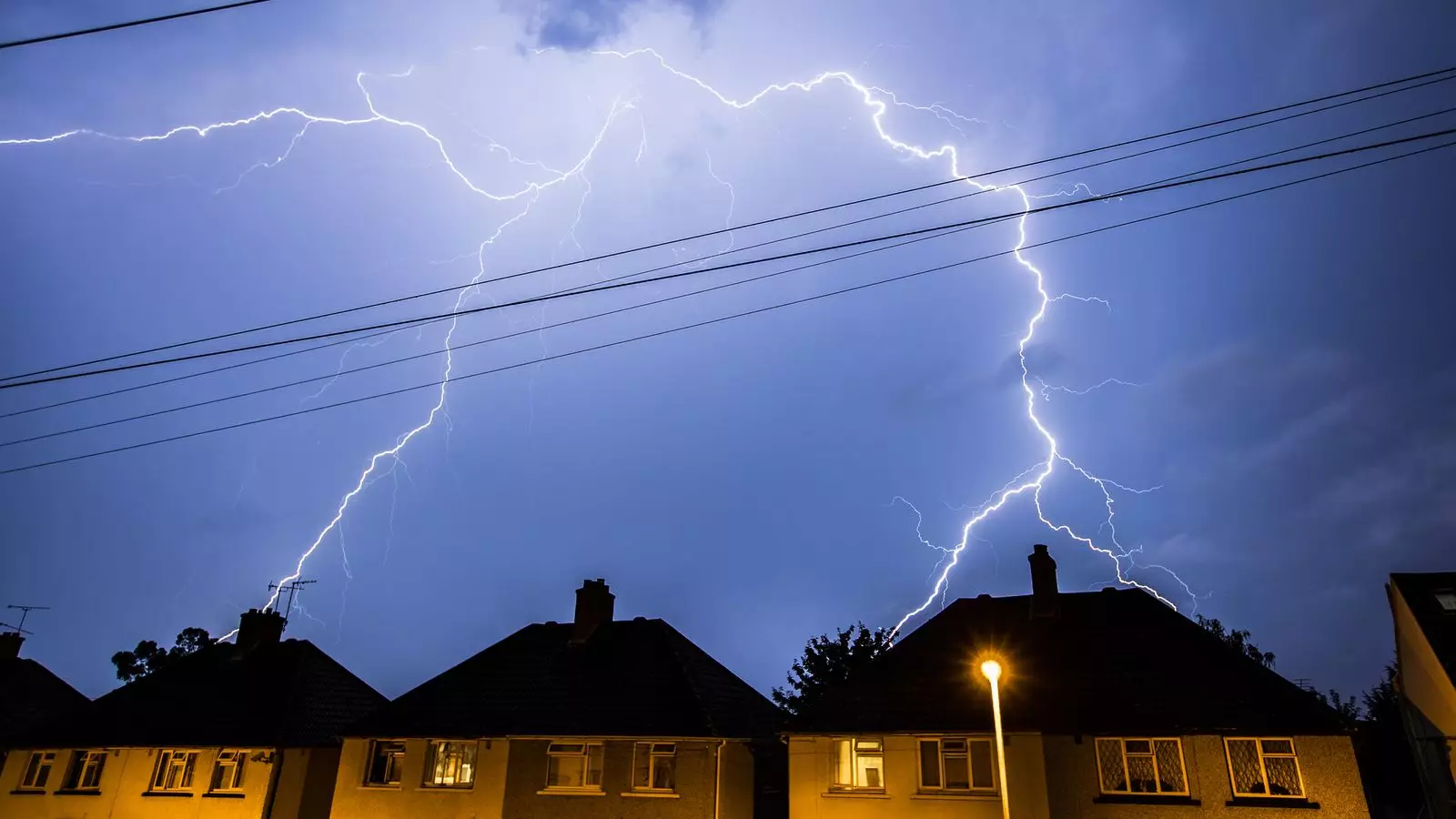The recent surge of severe weather events reveals a sobering truth: climate volatility is no longer a distant threat but an immediate challenge demanding urgent societal reflection. As thunderstorms batter London and southeastern England with relentless fury, the episode underscores the fragility of our urban systems and the false sense of security many have maintained amidst climate change. These meteorological upheavals are not isolated anomalies but symptoms of a destabilized ecological balance, pushing communities into the crossfire of nature’s increasing unpredictability.
The proliferation of yellow and amber weather warnings from the Met Office is more than just a routine alert; it is a stark indication of our collective vulnerability. With rainfall intensities reaching up to 90mm within a few hours — enough to cause widespread flash flooding — the potential for chaos grows exponentially. Roads turn into rivers, homes face inundation, and vital infrastructure collapses under the weight of saturated ground and violent storms. This scenario vividly exposes our shortcomings in urban planning, infrastructure resilience, and emergency preparedness.
Environmental Justice: The Hidden Cost of Climate Disasters
Beyond the immediate physical damage, these weather disturbances threaten to deepen social inequalities. Vulnerable populations — marginalized communities, the elderly, low-income families — bear the brunt of flooding, power outages, and transportation disruptions. When roads become impassable or power grids fail, the disparity between the privileged and the marginalized widens, revealing how climate change acts as a magnifier of existing social divides.
The fact that some areas face the likelihood of being cut off entirely from aid or emergency services should alarm us all. Flooded communities often experience delayed evacuations, inadequate shelter, and limited access to resources, turning natural disasters into social tragedies. This unfair distribution of risk highlights the critical importance of not only improving climate resilience but also ensuring that protective measures are equitable and just.
A Wake-Up Call for Policy and Personal Responsibility
Idealistically, policymakers should recognize that the increasing frequency and severity of storms demand a fundamental overhaul of our approach to climate adaptation. Investment in sustainable infrastructure, such as flood defenses and resilient transportation networks, is no longer optional but essential. However, the broader societal response must also include a shift towards reducing carbon emissions and embracing eco-friendly practices.
On a personal level, this weather crisis challenges each individual to reevaluate their role in this collective predicament. Simple acts — conserving water during drought, advocating for sustainable policies, supporting local resilience initiatives — are steps towards mitigating the worst outcomes. Ignoring these signs of an overheated planet only prolongs the cycle of destruction that hits hardest where it hurts the most.
The Irony of Paradox: Drying Lands, Yet Flooding Havoc
There is an unsettling paradox at play: England, facing its driest start since 1976, is now poised to drown in floods. The long-term droughts and water shortages, exacerbated by low reservoir levels and hosepipe bans, demonstrate that climate change doesn’t lend itself to linear patterns. Instead, it forces us into a landscape of chaos where dry land becomes suddenly vulnerable to catastrophic flooding.
This dichotomy illustrates a fundamental flaw in our current understanding and management of climatic risks. We continue to prepare for drought, yet find ourselves caught unprepared for sudden torrents. This inconsistency reveals the importance of holistic, integrated climate policies that recognize the interconnectedness of weather extremes rather than treating them as isolated events.
This recent wave of thunderstorms and flooding is a sobering reminder that our planet is signaling distress louder than ever. As communities grapple with nature’s fury, the onus is on society to accept the severity of the crisis, adapt swiftly, and push for systemic change. The storms may be natural, but the response must be human, resilient, and uncompromising.

Leave a Reply